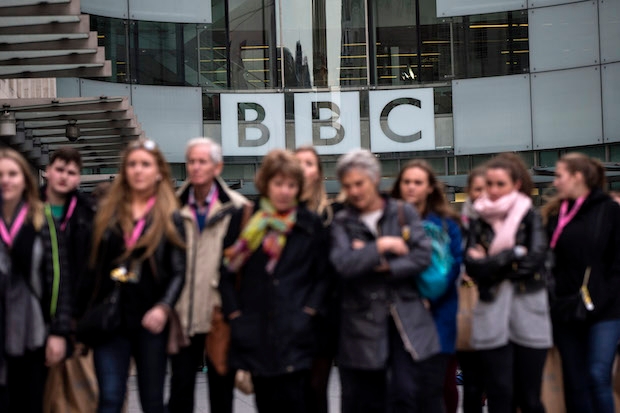There is a group of women who have every reason to feel aggrieved to learn that the BBC is paying Gary Lineker £1.8 million a year and John Humphreys between £600,000 and £650,000. But it doesn’t include Jane Garvey and Emily Maitlis, both of whom appear to be grubbing by on a little below £150,000. It is the 101,000 women found guilty last year of evading the TV licence.
If you want a genuinely worrying gender disparity, forget the BBC’s highest-earners and look at the balance of people at the bottom of society who are being dragged through the courts for the non-payment of the tax. The Perry Review into the TV licence, which reported two years ago, found that 70 per cent of those prosecuted for non-payment in 2012 were women. By 2015 this had grown slightly to 72 per cent. Of the 38 jailed for failing to pay a fine, 20 were women.
The Perry Review remarked on this disparity. “On the evidence available it has not been possible to reach any definitive conclusion to explain the reason for this gender imbalance.” It said it couldn’t find any evidence of discrimination, but the matter ought to be looked into further. It hasn’t been. For a while, it seemed as if the government might tackle the problem by decriminalising TV licence evasion when the BBC’s charter came up for renewal last year. But then the BBC put on its usual show, smothering the country with David Attenborough and begging that it needed every penny of revenue from the TV licence. The charter was renewed and that was that.
Why do more women than men get prosecuted? The Perry Review said it didn’t know, but it isn’t hard to guess. If you are a single mother, whose boyfriend has run off leaving you with little or no income but with three, squealing children, a television is a little luxury that you might well conclude you can’t do without – the one thing that keeps the kids quiet and makes life bearable. But the TV licence is a burden like the poll tax: a flat-rate, regressive tax which falls far more heavily on the poor than it does on anyone else. If you are on benefits, the TV licence is going to be by far the most significant form of tax you pay. You won’t be contributing much to the NHS, to schools, to your own benefits; but you will be contributing – just as much as any other household – to Gary Lineker’s salary. If you are at the very bottom of society and can’t work because you have three pre-school age children to look after, the government’s welfare reforms have done little to help you. You have lost child benefit on one of your three children and, unless you happen to live with a relative over the age of 75, you don’t qualify for a free TV licence.
Over the past 24 hours we have heard plenty of humble apologies from the BBC over the gender disparity between high-paid male and female presenters. It has promised to close the gender gap by 2020 but James Purnell, the former Labour minister who is now the BBC’s Director of Radio and Education, dismissed the case for achieving this via a general cut in male presenters’ earnings – suggesting that it will be tackled by pay rises for women, even increasing the wage bill for BBC fat cats.
The cause of ‘underpaid’ female presenters on £100,000 a year plus has been taken up by the Guardian, the Times, Labour, the Conservatives, the Lib Dems and others.Yet we haven’t heard a squeak out of any of them about the shocking number of poor, single mums being dragged through the courts because they can’t afford a TV licence. It is a damning statement on what feminism has become: a force which swings into action on behalf of well-paid women while ignoring the poor.







Comments